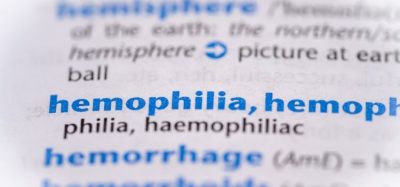CHMP meeting highlights – December 2022
Posted: 19 December 2022 | Catherine Eckford (European Pharmaceutical Review) | No comments yet
A total of five drugs were recommended for approval at the CHMP’s December meeting, including a gene therapy and two cancer drugs.


In its latest meeting, the European Medicines Agency (EMA)’s Committee for Medicinal Products for Human Use (CHMP) recommended five drugs for approval, including a gene therapy and two cancer drugs and adopted positive opinions for four therapies.
Recommended for approval
The committee recommended granting a conditional marketing authorisation for the advanced therapy medicinal product (ATMP) Hemgenix* (etranacogene dezaparvovec), the first gene therapy for the treatment of severe and moderately severe Haemophilia B. Haemophilia B is an inherited disorder characterised by an increased bleeding tendency due to a partial or complete deficiency in the activity of factor IX, a protein needed to produce blood clots to stop bleeding. Hemgenix was supported through EMA’s PRIority MEdicines (PRIME) scheme, which offers early and enhanced scientific and regulatory support to medicines that have a particular potential to address patients’ unmet medical needs.
Positive opinions
The CHMP adopted a positive opinion for Imjudo** (tremelimumab), in combination with Imfinzi (durvalumab) for adults with hepatocellular carcinoma (HCC), a type of liver cancer.
The group adopted a positive opinion for Tremelimumab AstraZeneca (tremelimumab), to treat metastatic non-small cell lung cancer (NSCLC) in combination with Imfinzi (durvalumab) and platinum-based chemotherapy.
The CHMP adopted a positive opinion for Pombiliti* (cipaglucosidase alfa) for the treatment of Pompe disease, otherwise known as glycogen storage disease type II. This rare genetic disorder causes muscle weakness and is often fatal. It disables the heart due to glycogen that builds up in the body cells and nerves.
A generic medicine, Diethyl fumarate Accord (dimethyl fumarate), received a positive opinion for the treatment of multiple sclerosis (MS), a chronic disease affecting the central nervous system. Dimethyl fumarate Accord is indicated for the treatment of adult and paediatric patients aged 13 years and over.
Negative opinion for one new medicine
The CHMP recommended the refusal of a marketing authorisation for Omblastys for treating of neuroblastoma, a rare type of cancer.
Recommendations on extensions of therapeutic indication for 11 medicines
The committee recommended 12 extensions of indication for medicines already authorised in the EU: Adcirca, Dupixent, Edistride, Enhertu, Fintepla, Forxiga, Hemlibra, Imfinzi (includes two new indications), Kerendia, Spikevax and Triumeq.
Withdrawals of applications
The application for marketing authorisation for Imbarkyd* was withdrawn. This medicine was intended for the treatment of chronic kidney disease (CKD) caused by Alport syndrome in adults and children 12 years and above.
The application for extension of therapeutic indication for Olumiant for the treatment of COVID-19 was withdrawn.
Conclusions of referrals
The CHMP completed reviews under Article 29(4), following disagreements among EU Member States regarding two medicines authorisations.
The committee concluded that the benefits of Gelisia outweigh its risks, and the marketing authorisation should be granted in the Netherlands and in the following States: France, Germany, Italy, Romania and Spain. Gelisia is an eye gel that is used to reduce pressure inside the eye in adults who have ocular hypertension (OHT), when the pressure in the eye is higher than normal or open-angle glaucoma (a disease where the pressure in the eye rises because fluid cannot drain out of the eye).
The committee concluded that the benefits of Rambis outweigh its risks, and the marketing authorisation should be granted in Poland and in the other States where the company has applied for a marketing authorisation (Czechia and Slovakia). Rambis is a medicine for patients with certain long-term heart conditions and high blood pressure in whom these conditions are well controlled by a combination of two medicines called ramipril and bisoprolol.
COVID-19 update
The committee recommended to extend the use of original Spikevax vaccine and Spikevax bivalent Original/Omicron BA.1 as a booster dose in children aged 6 to 11 years.
The committee recommended converting the conditional marketing authorisation of the COVID-19 vaccine Jcovden to a standard marketing authorisation.
*This product was designated as an orphan medicine during its development. Orphan designations are reviewed by EMA’s Committee for Orphan Medicinal Products (COMP) at the time of approval to determine whether the information available to date allows maintaining the medicine’s orphan status and granting the medicine ten years of market exclusivity.
** The information for Imjudo was corrected on 16 December 2022 to reflect the removal of the orphan designation on 8 December 2022.
EMA human medicines committee (CHMP) highlights, November 2022
Related topics
Anti-Cancer Therapeutics, Big Pharma, Biopharmaceuticals, Chemotherapy, Drug Development, Drug Safety, Gene therapy, Generics, Regulation & Legislation, Therapeutics, Vaccines, Viruses
Related organisations
Related drugs
Adcirca, Dimethyl fumarate Accord, Dupixent, Edistride, Enhertu, etranacogene dezaparvovec, Fintepla, Forxiga, Gelisia, Hemgenix, Hemlibra, Imbarkyd, Imfinzi (durvalumab), Imjudo, Jcovden, Kerendia, OLUMIANT® (baricitinib), Omblastys, Pombiliti (cipaglucosidase alfa), Rambis, Spikevax, tremelimumab, Triumeq









